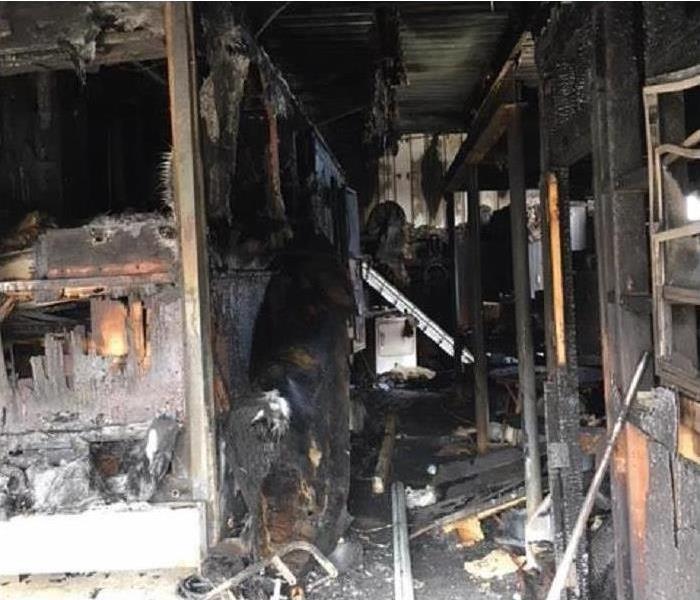Business Claims: Making a Disaster Claim
12/9/2021 (Permalink)
Fire Claim Process
While a blaze burning through your facility and your inventory is devastating enough, the fire damage can leave your property and your business boarded up for months. This is why it is essential to start the fire claim process immediately so that you can minimize the extent of the business interruption and get back to work quickly.
1. Call Your Insurer
While the first calls you make are to emergency services and family, the third call you should make after a fire is to your insurer. You want to make this call immediately after a fire to ensure that the claims process is initiated at the earliest possible moment. The longer you wait to make a claim, the longer it will take to get your business up and running.
2. Mitigate Further Damage and Loss
After you initiate the fire claim, you will want to get a fire restoration specialist from the Park City, UT, area on the scene to board up and tarp your facility, mitigating further damage and loss. If you already have a plan in place with a restoration expert, then call them and get the process started. Keep in mind that your insurer may require you to mitigate further loss, meaning that if you don’t, then your coverage may not kick in.
3. Keep Receipts
As you begin the cleanup, be sure to track all of your expenses by saving and tallying all receipts. When the adjuster arrives, they will want a full record of the damages incurred and the mitigation efforts made to reduce further property loss and damage.
4. Make a Record of Loss
Additionally, you should walk your property, photographing all damages to show your insurance adjuster. This record of loss will be used when evaluating your claim. You should also include any relevant receipts for the damaged property so your insurer can create an accurate valuation of the overall loss.
A fire claim may seem like a confusing process, but as with every bureaucratic process, there are appropriate steps to take. After a fire, just make sure to call your insurer, mitigate further damage, keep receipts and make a record of loss.





 24/7 Emergency Service
24/7 Emergency Service
